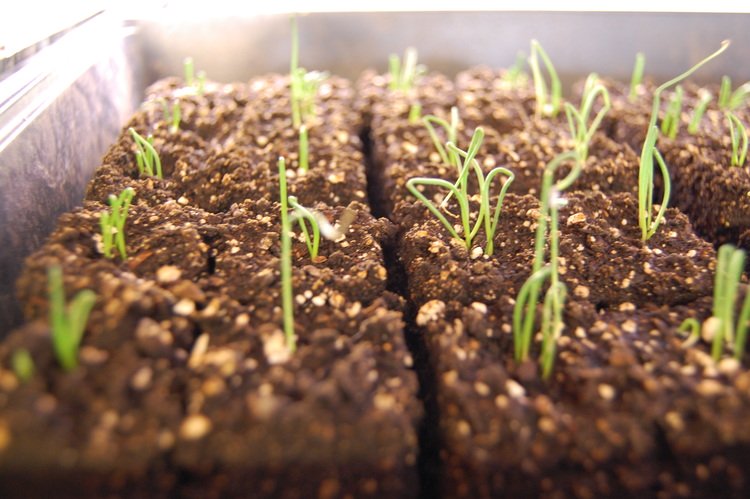 Whether you’re on a budget, aren’t sure of the authenticity of local organics or both, the surest and cheapest way to get good organic food is by growing your own. And growing your own can be as simple or as involved as you want.
Whether you’re on a budget, aren’t sure of the authenticity of local organics or both, the surest and cheapest way to get good organic food is by growing your own. And growing your own can be as simple or as involved as you want.
If you’re a first-time gardener, the trick is not to overwhelm yourself. Keep your garden relatively small, but leave room for expansion when you’re ready. A family of 4 can start with about 200 square feet (approximately 50 square feet per person) and have a great supply of produce. But if you don’t want to start that big, don’t. Do what you’d like and what you can.
 If you don’t have a lot of space, containers work well. Root vegetables may not be possible but some people report great success in growing potatoes in compost bags. Other traditional container fare includes tomatoes, cucumbers, green beans, carrots, peppers, strawberries, blueberries and herbs.
If you don’t have a lot of space, containers work well. Root vegetables may not be possible but some people report great success in growing potatoes in compost bags. Other traditional container fare includes tomatoes, cucumbers, green beans, carrots, peppers, strawberries, blueberries and herbs.
If you are growing in the ground, there are a couple of things to consider. First, is the amount of sunlight. The second is soil quality.
For sunlight, you should find a space that gets what’s full sun. That’s about 8 hours of sun each day. Some items may need a little less sun, but 8 hours will help you grow a large variety.
For soil quality, you are looking for a pH of about 5.8 – 6.8 and you can buy an inexpensive testing kit at a garden store. You can increase pH, or correct acidity, by adding limestone. To decrease pH, or to correct alkalinity, use elemental limestone. Also, ensure that you have plenty of organic material in your soil and add leaves and compost to help.
If your soil isn’t quite right, you can make raised beds and surround them with bricks or stone to contain the nutrient rich and balanced soil.
When you’re ready to start planting, consider planting some plant starts, instead of seeds. They may be a little more difficult to find organically, but for first time growers, they’re much easier to work with.
Make sure to water your plants regularly. Seeds should be watered daily. New plants should be watered every 2-3 days. On particularly hot days, you may need to do more. You can even collect rain water for your plants by using rain barrels or creating your own from garbage pails.

Organic herbicides don’t work that well. Instead, take the time to pull weeds, ensuring you grab the weeds fully by their roots or they will continue to grow. Weeding regularly will keep them from maturing and becoming problematic…plus it makes your whole job quicker and easier.
As you go through your gardening journey, keep a record. Write down dates things are planted, how they are treated and progress. Take weather and other conditions into consideration. It will allow you figure out what worked well and help you improve your gardening techniques, year after year.
You may not feel like a green thumb now, but keep at it. It’s so worth it.



